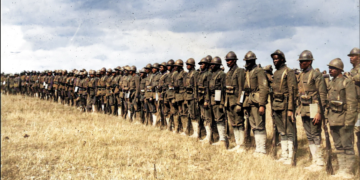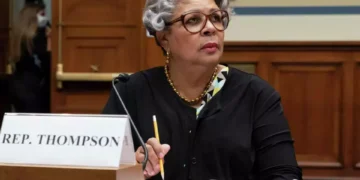June 27, 2025 Story by: Publisher
Black voter turnout in the 2024 U.S. presidential election remained relatively strong compared to 2020, defying early speculation of widespread disengagement, according to a June 2025 analysis by the Pew Research Center.
Turnout Among Black Voters Remains Robust
Pew’s report confirms that Black voter turnout did not significantly decline from 2020 to 2024. Participation levels remained stable, contributing to what Pew described as the second-highest national turnout rate for a presidential election since 1960. This challenges earlier narratives that suggested a steep drop-off in Black participation.
Turnout variations across the electorate were more attributable to who voted within each group, not large-scale disengagement by specific racial groups. Black turnout remained consistent in many areas, while some heavily Democratic, majority-white counties saw more pronounced drops.
Candidate Preferences: Continued Democratic Support, Modest Republican Gains
The 2024 Pew post-election survey shows that 83% of Black voters supported Kamala Harris, the Democratic nominee, while 15% supported Donald Trump, the Republican nominee. This represents an increase in Black support for Trump from 2020 when he received 8% of the Black vote.
Black Voter Support in U.S. Presidential Elections (2008–2024)
- 2008:
- Democrat (Barack Obama) – ~95%
- Republican (John McCain) – ~4%
(Historic turnout surge due to Obama’s candidacy)
- 2012:
- Democrat (Barack Obama) – ~93%
- Republican (Mitt Romney) – ~6%
(Black turnout eclipsed white turnout for the first time)
- 2016:
- Democrat (Hillary Clinton) – ~88%
- Republican (Donald Trump) – ~8%
(Slight drop in both turnout and support for Democrats)
- 2020:
- Democrat (Joe Biden) – ~87%
- Republican (Donald Trump) – ~8%
(Rebound in turnout, key to Biden’s wins in swing states)
- 2024:
- Democrat (Kamala Harris) – ~83%
- Republican (Donald Trump) – ~15%
(Modest shift toward GOP, especially among Black men and younger voters)
The shift was most pronounced among Black men and younger Black voters, according to Pew’s demographic breakdown of voting patterns.
Younger Voters Show Less Certainty to Vote
While Black turnout overall held steady, younger Black adults showed signs of declining motivation. A Washington Post–Ipsos poll conducted before the election found that just 41% of Black adults under age 40 said they were “absolutely certain” to vote, compared to 61% in 2020. Although this drop in self-reported certainty did not necessarily translate into lower turnout, it suggests a possible early warning sign of generational disengagement.

(Chart Caption: Black voter support for Democrats remains high but shows generational and gender shifts—especially among younger Black men in 2024.)
Regional Patterns Reflect Continued Strength
Black voters in metropolitan areas such as Atlanta, Philadelphia, Detroit, and Milwaukee continued to play a decisive role in state-level and national outcomes, mirroring patterns seen in 2020. Pew data and state-level vote returns show that sustained turnout in these urban centers helped deliver key margins for Democrats in tightly contested races.
Source: Pew Research

















